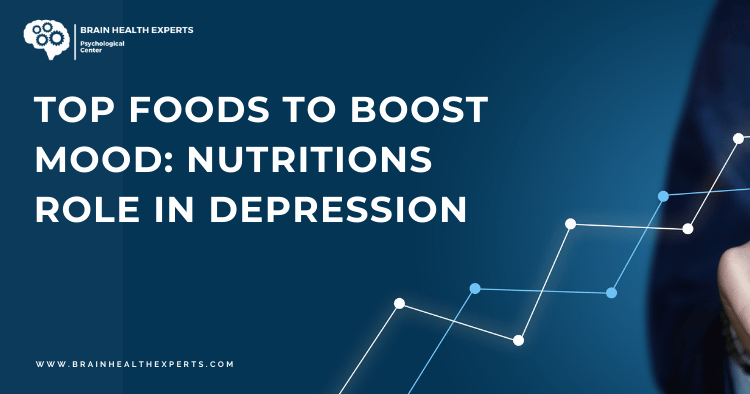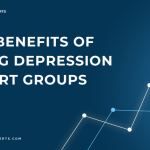Introduction
Depression is a complex mental health disorder affecting millions globally. While therapy and medication are often the primary treatments, the role of nutrition in managing depression is gaining increasing attention. What we eat can significantly influence our mood, energy levels, and overall well-being. In this article, we’ll explore how nutrition impacts depression and highlight specific foods that can help boost your mood.
Did you know? Studies show that our dietary choices can alter brain chemistry, potentially making us feel happier or sadder. It’s fascinating how food can influence our emotions!
Understanding Depression
Depression is more than just feeling sad; it’s a multifaceted condition that can lead to a range of emotional and physical problems. Symptoms may include persistent sadness, loss of interest in activities, changes in appetite, fatigue, and difficulty concentrating. According to the World Health Organization, depression is the leading cause of disability worldwide, affecting approximately 264 million people.
Common Types of Depression
- Major Depressive Disorder (MDD): Characterized by severe symptoms that interfere with daily life.
- Persistent Depressive Disorder (Dysthymia): A chronic form of depression with less severe symptoms.
- Bipolar Disorder: Involves alternating episodes of depression and mania.
- Seasonal Affective Disorder (SAD): A type of depression related to changes in seasons.
“Understanding the different types of depression is crucial for effective treatment. Each type may require a tailored approach.”
The Connection Between Nutrition and Mental Health
The relationship between nutrition and mental health is an area of active research. Nutritional psychiatry suggests that nutrient-rich foods can positively impact mood and cognitive function. A diet high in processed foods and sugars has been linked to increased rates of depression, while a balanced diet rich in whole foods can help mitigate these effects.
How Nutrition Affects Mood
- Brain Function: The brain requires various nutrients to function optimally. Deficiencies in vitamins and minerals can lead to mood disorders.
- Inflammation: Poor diet can lead to chronic inflammation, which is associated with depression.
- Gut Health: A healthy gut microbiome influences neurotransmitter production, including serotonin, often referred to as the “happy hormone.”
“Think of your brain like a car: it needs the right fuel to run smoothly. Optimal nutrition is that fuel!”
Key Nutrients for Mood Enhancement
Certain nutrients play a crucial role in mental health. Here are some of the most impactful ones:
4.1 Omega-3 Fatty Acids
Omega-3 fatty acids are essential fats that the body cannot produce independently. They are vital for brain health and have been shown to reduce symptoms of depression. Foods rich in omega-3 include:
- Fatty fish (salmon, mackerel, sardines)
- Flaxseeds
- Chia seeds
- Walnuts
4.2 B Vitamins
B vitamins, particularly B6, B12, and folate, are essential for brain health. They help regulate mood and energy levels. Sources include:
- Leafy greens
- Eggs
- Legumes
- Whole grains
4.3 Vitamin D
Often referred to as the “sunshine vitamin,” vitamin D plays a significant role in mood regulation. A deficiency is linked to an increased risk of depression. Good sources include:
- Fatty fish
- Fortified dairy products
- Eggs
- Mushrooms
4.4 Antioxidants
Antioxidants protect the body against oxidative stress, which is linked to depression. Foods high in antioxidants include:
- Berries (blueberries, strawberries)
- Nuts
- Green tea
- Dark chocolate
“Remember, vitamins and minerals are not just for your body—they’re essential for a healthy mind, too!”
Top Foods to Include in Your Diet
Incorporating mood-boosting foods into your diet can be a delicious and effective way to manage depression. Here’s a table summarizing some of the top foods to consider:
| Food Type | Key Nutrients | Examples |
|---|---|---|
| Fatty Fish | Omega-3s | Salmon, sardines |
| Leafy Greens | B Vitamins, Antioxidants | Spinach, kale |
| Nuts and Seeds | Healthy Fats, Antioxidants | Walnuts, flaxseeds |
| Whole Grains | B Vitamins, Fiber | Quinoa, brown rice |
| Fermented Foods | Probiotics | Yogurt, kimchi |
5.1 Fatty Fish
Fatty fish like salmon and mackerel are packed with omega-3 fatty acids, which can significantly improve mood and cognitive function. Aim for at least two servings a week.
5.2 Leafy Greens
Leafy greens such as spinach and kale are rich in iron and folate, both of which are essential for neurotransmitter synthesis. Add these to salads, smoothies, or stir-fries.
5.3 Nuts and Seeds
Nuts and seeds are excellent sources of healthy fats, protein, and antioxidants. A handful of walnuts or chia seeds can be a perfect snack or topping for your meals.
5.4 Whole Grains
Whole grains like quinoa and brown rice provide complex carbohydrates that help stabilize blood sugar levels, leading to a more balanced mood.
5.5 Fermented Foods
Fermented foods like yogurt and sauerkraut are rich in probiotics, which support gut health. A healthy gut is crucial for mental well-being, as it influences the production of neurotransmitters.
“Adding variety to your diet doesn’t just keep meals interesting—it also boosts your body’s nutrient intake, which can enhance your mood!”
Mood-Boosting Recipes
Here are a couple of simple recipes to help you incorporate these mood-boosting foods into your diet:
Omega-3 Rich Salmon Salad
Ingredients:
- 1 salmon fillet
- Mixed leafy greens
- Cherry tomatoes
- Avocado
- Olive oil, lemon juice, salt, and pepper
Instructions:
- Grill or pan-sear the salmon until cooked through.
- Toss the leafy greens, tomatoes, and avocado in a bowl.
- Top with the cooked salmon and drizzle with olive oil and lemon juice.
Quinoa and Black Bean Bowl
Ingredients:
- 1 cup cooked quinoa
- 1 can black beans (drained and rinsed)
- 1 cup diced bell peppers
- 1 avocado
- Cilantro, lime juice, salt, and pepper
Instructions:
- Combine quinoa, black beans, and bell peppers in a bowl.
- Top with diced avocado and sprinkle with cilantro, lime juice, salt, and pepper.
“Cooking can be a therapeutic activity! Enjoy the process and savor the delicious, mood-boosting meals you create.”
FAQs about Nutrition and Depression
1. Can diet really affect my mood?
Yes! Research shows that a balanced diet rich in whole foods can positively impact your mood and reduce symptoms of depression. For more insights on how positive thinking can transform your daily life, check out 10 Ways Positive Thinking Transforms Your Daily Life.
2. How long will it take to see results from dietary changes?
While individual responses vary, many people notice improvements in their mood within a few weeks of adopting a healthier diet.
3. Should I stop taking my antidepressants if I change my diet?
Always consult with a healthcare professional before making any changes to your medication or treatment plan.
4. Are there specific foods I should avoid?
Yes, processed foods, sugary snacks, and excessive caffeine can negatively affect mood. Try to limit these in your diet.
“While food alone may not cure depression, it can be a powerful ally in your overall treatment plan.”
Conclusion
Nutrition plays a pivotal role in managing depression. By incorporating mood-boosting foods rich in essential nutrients into your diet, you can create a solid foundation for emotional well-being. Remember, while food is a powerful tool, it should complement other treatments like





